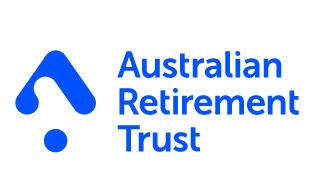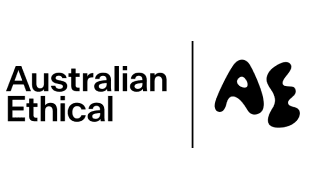





Compare other products
We currently don't have that product, but here are others to consider:
How we picked these
The information in this table is based on data provided by SuperRatings Pty Limited ABN 95 100 192 283, a Corporate Authorised Representative (CAR No.1309956) of Lonsec Research Pty Ltd ABN 11 151 658 561, Australian Financial Services Licence No. 421445. In limited instances, where data is not available from SuperRatings for a product, the data is provided directly by the superannuation fund.
*Past performance data and fee data is for the period ending December 2024
Best super funds: Finder's 5 picks
Using data from the Finder Awards, we have the following winners based on different super fund categories:
Best Balanced Super Fund: UniSuper - Sustainable Balanced
- This fund has delivered an average annual return of 7.79% over the last 10 years
- It has low fees of just $316 for a $50,000 balance.
- It selects investments based on a range of ethical criteria that limits investment in fossil fuel companies, gambling, alcohol and tobacco and weapon manufacturing.
Best Super Fund Provider: Aware Super
- Aware Super combines strong fund performance across the majority of its investment options with great customer satisfaction and trustworthiness.
- Its Balanced Socially Conscious option has delivered an average annual return of 7.81% over the last 10 years.
- The Balanced Socially Conscious option has low fees of just $322 on a $50,000 balance.
Best Shares Super Fund: Australian Retirement Trust - International Shares Index (unhedged)
- This fund has achieved strong returns of 11.92% p.a. over the last 10 years.
- It invests 100% in international shares, making it a very high growth option.
- It has very low fees of just $192 p.a. based on a $50,000 balance.
Best Ethical Super Fund: Australian Ethical Super - Growth
- This fund won the Finder Green Awards super fund of the year in 2020, 2021, 2022 and 2023.
- Australian Ethical is one of just a handful of super funds to be certified by the Responsible Investment Association Australasia.
- It excludes all fossil fuel investments and most mining companies, while actively investing in renewable energy.
- It's Growth product has returned 7.8% p.a. for the last 10 years.
Best Low Fee Super Fund: Hostplus Indexed Balanced
- Hostplus Indexed Balanced has very low fees of $135.26 on a $50,000 balance. That's a fee of just 0.29% p.a!
- It also has strong performance returns of 7.82% p.a. over the last 10 years.
- It has a combination of some of the lowest fees and strongest performance returns of all Balanced funds in our panel.
We regularly look at the super funds in our database to determine which are the best offers for a range of different purposes. Our best super fund picks are a combination of winners from the Finder Awards, the Finder Green Awards and our own expert selections from our partners.
For more detailed insights into the Finder Award winners and how each category of super fund awards was judged, take a look at our Finder Superannuation Awards for a full breakdown of each methodology.
What's the best-performing super fund?
These are the 10 Balanced super funds with the best returns over the past decade, according to Super Ratings data at December 2024.
| Super fund product | 10-Year return |
|---|---|
| Hostplus Balanced | 8.4% p.a. |
| Australian Retirement Trust Balanced | 8.3% p.a. |
| AustralianSuper Balaned | 8.1% p.a. |
| UniSuper -Balanced | 7.9% p.a. |
| Cbus Growth | 7.8% p.a. |
| VisionSuper Balanced Growth | 7.8% p.a. |
| Hostplus Indexed Balanced | 7.7% p.a. |
| HESTA Balanced Growth | 7.7% p.a. |
| AwareSuper Balaned | 7.7% p.a. |
| CareSuper Balanced | 7.6% p.a. |
Top 5 super funds for customer satisfaction
The Finder Customer Satisfaction Awards recognises the best performing super fund for customer satisfaction. It's an award that is decided by the only votes that really matter – yours. We asked customers of major super funds to tell us about their experiences. Now we can reveal what they said.
| Provider | Overall satisfaction | Trustworthy/reliable |
|---|---|---|
 | ★★★★★ 4.46/5 | 100% |
 | ★★★★★ 4.46/5 | 94% |
 | ★★★★★ 4.28/5 | 94% |
 | ★★★★★ 4.26/5 | 100% |
 | ★★★★★ 4.15/5 | 91% |
What's the best super fund for my age?
While you're in your 20s, 30s and even 40s you want to have a super fund that charges minimal fees while delivering high returns. While you're young, make sure you're invested in enough growth assets to ensure your balance really benefits from compound growth.
As you get closer to retirement you might want to gradually reduce your exposure to growth assets like shares, so look for a fund that has a more balanced mix.
We've got more tips for managing your super depending on your lifestage:
How to pick the best super fund
Choosing the right super fund is crucial for your financial future. While the top-performing funds are a great start, they may not always align with your specific needs. If you're looking elsewhere, consider these key factors:
- High long-term returns. Look for funds with a consistent track record of strong returns over the long term (funds with 10-year returns above 7% p.a. are among the top performers).
- Low fees. Higher fees can significantly eat into your retirement savings. Opt for funds with lower fees without compromising on performance (aim for annual fees less than 1% of your super balance).
- Investment strategy aligns with your age. Younger investors might prefer high-growth options, whereas those nearing retirement may prioritise stability and have a shorter investing time horizon for a portion of their balance. If needing access to funds in the next 3-5 years, it's important to be invested in a lower risk option.
- Access to insurance cover. Does the fund offers members cost-effective life, TPD and salary continuance policies?

"I only moved to Australia 6 years ago so I'm playing catch up with my super. For me, low fees are important and to know my money isn't being invested in something that's destroying the planet. I also cancelled the life insurance inside my super because the premiums increase every year."
FAQs about picking the best super funds in Australia
Ask a question
26 Responses
More guides on Finder
-
Your super fund is merging – what it means for you
How are you impacted when two supers become one? Find out what you can expect when super fund mergers happen.
-
Superannuation in your 30s and 40s
By 30 you need around $35,000 in your super to be on track, and by 40 you should $140,000. Here's how to boost your super for a comfortable retirement.
-
How much super should I have at 50?
How much super should you have by 50 if you want a comfortable retirement, and what do you do if you're behind?
-
Superannuation mistakes
Here are the 7 most common mistakes people make with their super, and how you can avoid them.
-
Superannuation calculator
Use our free superannuation calculator to see your projected retirement balance, and how this could change by switching funds.
-
How much super should I have?
The average super balance is $154,350. Compare your super balance against the average balance for your age group to see if yours is on track.
-
Worst Super Funds
Here’s a current list of the worst-performing super funds in Australia and steps for how to switch to a better fund.
-
Conservative super funds
Conservative super funds are designed to protect your superannuation savings. These funds have more money invested in low-risk, defensive assets like cash, fixed interest and bonds and less money invested in shares.
-
AustralianSuper vs Australian Ethical Super
Trying to decide between AustralianSuper and Australian Ethical Super? We've compared their fees, performance and investments to help you choose.
-
Superannuation for sole traders and self-employed
Self-employed super contributions are a great way to boost your retirement savings, but there are some rules. See rules for contributions and compare super funds if you're self employed.



As a self employed, am I by law required to have a super fund? At 50, contemplating on starting a superannuation fund, plus paying for a 30 year mortgage, is there a table showing approximately returns on what amount is put in… Are there previous charts on what is put in and what is the outcome after 10/ 20 years?
Hi there,
When you are self-employed there is no legal requirement to pay yourself superannuation. However, there may be some tax advantages of doing so, not to mention the benefit of investment returns.
We’re not licenced to offer personal advice, but this calculator can help you understand how much you might be able to generate through super (in the employer contributions section, enter the percentage that you are considering paying):
https://www.finder.com.au/super-funds/superannuation-calculator
Also, here is some more information about superannuation for self-employed Australians:
https://www.finder.com.au/super-funds/superannuation-for-sole-traders
Hope this helps!
i have a 15 year old who is working. what is the best super fund for teenagers?
Hi Rachel,
We won’t be able to recommend any specific super fund products for your son. However we have written what to look for when selecting a suitable fund here
Thanks
Raj
Hi, I am looking for the best returning super fund taking into account as is stated on your website the fees, how the fund invests your money and if it aligns with your risk appetite which is high growth. The difficulty I am having is comparing high growth as the definition/asset class and the weightings between different super funds can vary so we are not comparing apples to apples. Currently I am with an industry fund and find since they run a lot of ads, fund profits/fees are eaten by the ads so I am looking for other type of funds that are also transparent. Thank you
Hi Navid, Finder is a comparison site and we aren’t licensed to give you any personal advice or product recommendations. You can use our comparison table to compare high growth options, by using the filters on the side: https://www.finder.com.au/super-funds
Hope this helps. Thanks,
Alison
Hi, I’m an international student (my plan is to get a PR eventually), and I am about to start 2 casual jobs; I do not know how to choose which is better for my situation. Could you please assist me with that?
Thank you.
Hi Maria, we aren’t licensed to offer you any personal financial advice or product recommendations. In general when choosing a super fund it’s best to look for a fund that has a combination of low annual fees and a history of high long-term returns. If you’d like some personal recommendations it’d be best to speak to a financial adviser who can give you recommendations for your situation. Thanks, Alison.
If the fees charged by on a Pension account are a percentage of your balance, how do you lose money by having more than one account?
Hi Barb, usually super funds charge a dollar based fee as well as a percentage based fee.